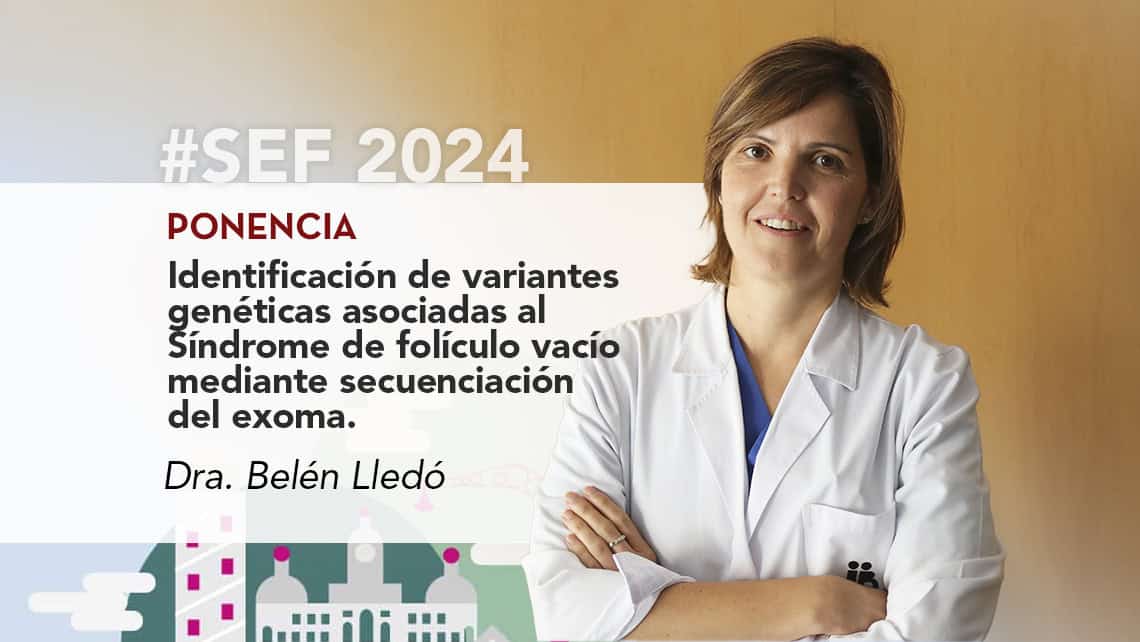Belén Lledó will present at the SEF congress a study that has identified new genes related to the Empty Follicle Syndrome
May, 2nd 2024

Dr Belén Lledó, scientific director of Instituto Bernabeu Biotech, will give an oral presentation at the Spanish Fertility Society (SEF in Spanish) congress entitled “Identification of genetic variants associated with Empty Follicle Syndrome by exome sequencing”. In this study, she will present the results of a pioneering study that has identified new candidate genes related to this complex pathology.
Empty follicle syndrome (EFS) is a rare condition in which no oocytes are retrieved in an IVF cycle even though follicular development appears to be normal. This can be a major obstacle for women seeking pregnancy through assisted reproductive techniques.
The study conducted by Dr Lledó’s team included 1,689 oocyte donors. Of these, 7 patients (0.41%) had EFS after two cycles of ovarian stimulation. These patients underwent whole exome sequencing analysis, a technique that allows the analysis of the entire protein-coding DNA. The results of the study identified 6 genetic variants in 5 of the EFS patients. These variants were classified as pathogenic in candidate genes that have not previously been associated with EFS, but are involved in important biological processes related to folliculogenesis, the follicular development.
“This study represents a significant advance in the empty follicle syndrome understanding,” says Dr Belén Lledó. “The identification of new candidate genes opens up new routes for the diagnosis and treatment of this pathology,” she says.
The findings of this study could have an important impact on clinical practice. By understanding the genetic cause of EFS, patients could receive a more personalised treatment with greater chances of success. “Our goal is to continue research in this area to improve the diagnosis and treatment of empty follicle syndrome and help women suffering from this pathology to achieve their dream of becoming mothers,” concludes Dr Lledó.
Study on the thin endometrium
Dr Lledó will also present at the congress the results of another study carried out at Instituto Bernabeu in which the association between polymorphisms of oestrogen receptors 1 and 2 (ESR1 and ESR2) and progesterone (PGR) and idiopathic thin endometrium has been analysed. Thin endometrium is a condition affecting 10-20% of women of reproductive age and can hinder pregnancy.
The study, which included 129 patients who underwent a PGT-A cycle at Instituto Bernabeu, has found that certain genotypes in the oestrogen and progesterone receptor are associated with thin endometrium. These results suggest that genetic predisposition may play an important role in the development of this condition.
“This study is the first to demonstrate an association between oestrogen and progesterone receptor polymorphisms and idiopathic thin endometrium,” says Dr Lledó. “These findings could have important implications for the treatment of patients with this condition“.
The study results have also led to the development of a pregnancy prediction model using clinical data and the ESR2 and PGR genotypes. This model could help to identify patients at higher risk of not achieving pregnancy and to personalise their treatment.
